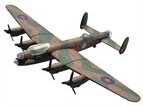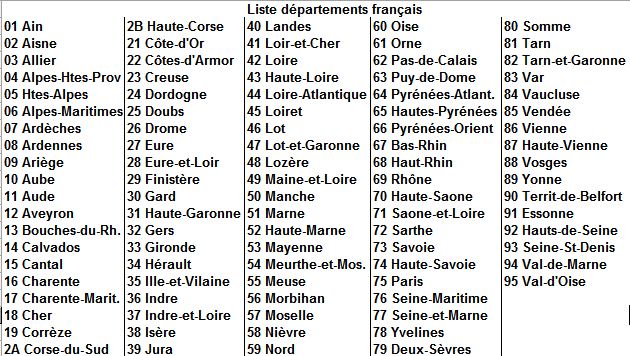
|
Crash - Avro Lancaster - type B II - s/n DS726 EQ°Y |

|

|
Crash - Avro Lancaster - type B II - s/n DS726 EQ°Y |

|
| Fiche France-Crashes 39-45 modifiée le 30-01-2023 | |||||
| Date | Nation |
 Département Département |
Unité | - | Mission |
|---|---|---|---|---|---|
| 13-06-1944 | Angleterre/Common. | Nord | 408 Sq Goose RCAF | Cambrai (59) : installations ferroviaires | |
| Grade | Prenom | Nom | Poste | Corps | Etat |
 Lieu d'Inhumation Lieu d'Inhumation |
Commentaires |
|---|---|---|---|---|---|---|---|
| Sq/L | William Benjamin | Stewart | Pil | RCAF | Décédé | Cim Mil Forenville (59) TJ H.1A * | J/15486-R/77053 - 22 ans - Né le 20/10/1921 Grand Cascapedia, Quebec - Fils de William McNevin et Anabella Sarah Ellen (Gilker) Stewart, de New Richmond Station, Province de Quebec, Canada. |
| P/O | Norman | Varley | Mec | RAF | Décédé | Cim Mil Forenville (59) TJ H.1A * | 178252 - 21 ans - Fils de Herbert et Hilda Varley, Kippax, Yorkshire UK |
| F/O | Gordon Ewart | Mallory | Nav | RCAF | Décédé | Cim Mil Forenville (59) TJ H.1A * | C/16622 - 31 ans - Né le 01/03/1913 Duncan, BC - Fils de Gordon Ewart et Edith (Erskine) Mallory - Conjoint de Nina Mallory - Vancouver, BC, Canada |
| F/O | Wendell Chesley | Burns | Bomb | RCAF | Prisonnier | J/21574 - Né le 13/06/1915 Drake, Saskatchewan, Canada - Fils d'Alexander Murray et Garda Mae (Reade) Burns - Conjoint de Winifred M Burns - Pow 1995 Stalag Luft III - †1982 | |
| P/O | Jack | Bray | Rad/M | RAF VR | Décédé | Cim Mil Forenville (59) TJ H.1A * | 174002 - 21 ans - Fils de T Bray, de Langley Mill, Derbyshire UK |
| P/O | Gaston Jean Baptiste Joseph | Lapierre | MitS | RCAF | Echappé | J/86146 - DFC - Né le 03/04/1923 - Montreal, PQ - Rapport WO 208/3348/283 - †1986 | |
| P/O | Robert Duncan | Ochsner | Mit | RCAF | Décédé | Cim Mil Forenville (59) TJ H.1A * | J/85342 - 25 ans - Né le 29/03/1919 Alberta - Fils de Ernest Robert et Alice Louisa (Forrest) Ochsner, de Bittern Lake, Alberta, Canada; conjoint de Roberta Ochsner. |
| W/O2 | Harry Frederick | Murphy | Mit | RCAF | Décédé | Cim Mil Forenville (59) TJ H.1A * | R/151486 - 20 ans - Né le 28/06/1920 Charlo Town - Fils de John A Murphy et Lorna M Murphy, Kirkland Lake, Ontario, Canada; conjoint d'Isobel Jean Murphy |
| Fiche tech | Correspondance grades | Abréviations utilisées | Filières d'évasion | Camps de Pow | Bases RAF/USAAF | Utilitaires |
|---|
|
Rapport de perte K.244 du DS726 - ( : 1. The Lancaster took off from Linton-on-House at about 2200 hrs. The French coast was crossed at about 5,000 ft and the sortie was normal as far as the target area. The weather was fairly clear with starlight but no moon. 2. The target was reached at 2355 hrs, and the Lancaster made a run across the target, but the Air Bomber missed the T.I. markers. During this run the Mid Under Gunner saw an Me 110 pass below from astern to ahead. The Pilot turned to begin a second run, for which the Air Bomber was giving his directions. The Mid Under Gunner was throwing out window when he suddenly heard the Rear Gunner firing. Looking round he saw an Me 110, about 300 yds below and astern, at which the Rear Gunner was firing. The Mid Under Gunner turned his gun round and saw his tracer strike the cockpit of the enemy aircraft which he believed was shot down. 3. The Lancaster was hit about the nose, in front of the bomb-bay and near the root of the port wing. Informant stated the strikes were M/G fire, not cannon. The port inner tank caught fire at once and the flames streaming back, enveloped the Mid Under Gunner's turret. The aircraft was now diving steeply and the Pilot gave the order to bale out. The Mid Under Gunner helped the Mid Upper Gunner to get out of his turret which was rendered difficult by the aircraft's acceleration. Flames were now entering the fuselage and the Mid Under Gunner baled out from his turret (pushing his M/Gs aside). His parachute worked normally and he made a good landing at midnight at Riemilly, south of Cambrai. He noticed on another 'chute descending. 4. Information was told afterwards that the aircraft had crashed on a German airfield nearby and that there were five bodies on board ; also that one German fighter had been shot down.Original) - source : National Archives UK – Traduction Ph Laroyenne 1. Le Lancaster a décollé de Linton-on-House vers 22h00. La côte française est franchie à environ 5 000 pieds et la sortie est normale jusqu'à la zone visée. Le temps était assez clair avec la lumière des étoiles mais pas de lune. 2. La cible a été atteinte à 23h55 et le Lancaster a traversé la cible, mais le bombardier a raté les Target Indicators (marqueurs de cible verts ou rouges)T.I. Au cours de cette passe, le mitrailleur inférieur a vu un Me110 passer en dessous de l'arrière vers l'avant. Le pilote du Lancaster a fait demi-tour pour entamer une deuxième passe, pour laquelle le bombardier aérien donnait ses instructions. Le mitrailleur inférieur jetait des windows quand il a soudainement entendu le tir de l'artilleur arrière. En regardant autour de lui, il a vu un Me110, à environ 300 mètres plus bas et à l'arrière, sur lequel le mitrailleur arrière tirait. Le mitrailleur inférieur a retourné son arme et a vu ses traçantes frapper le cockpit de l'avion ennemi qu'il croit avoir abattu. 3. Le Lancaster a été touché au niveau du nez de l’avion, devant la soute à bombes et près de l'emplanture de l'aile bâbord. L'informateur a déclaré que les frappes étaient des tirs de mitrailleuses, pas des canons. Le réservoir intérieur bâbord a pris feu immédiatement et les flammes refluant, ont enveloppé la tourelle du mitrailleur inférieur. L'avion plongeait maintenant fortement et le pilote a donné l'ordre d’évacuer. Le mitrailleur inférieur a aidé le mitrailleur supérieur à sortir de sa tourelle, ce qui était rendu difficile par l'accélération de l'avion. Les flammes pénétraient maintenant dans le fuselage et le mitrailleur inférieur a sauté de sa tourelle (en poussant ses mitrailleuses de côté). Son parachute a fonctionné normalement et il a effectué un bon atterrissage à minuit à Rumilly-en-Cambrésis (?), au sud de Cambrai. Il a remarqué un autre parachute descendre. 4. Des informations ont été communiquées par la suite selon lesquelles l'avion s'était écrasé sur un aérodrome allemand à proximité et qu'il y avait cinq corps à bord ; et aussi qu'un chasseur allemand avait été abattu. Rapport E&E P/O Lapierre – ( On 12 Jun I was forced to bale out at midnight. It was so dark when I landed that I could not keep track of the rest of the crew. I made my way to a farmhouse where I slept in the barn until morning. I then made myself known to the inhabitants and asked to help me. They took my equipment and hid it for me, and then gave me some civilian clothes and then took me to a house in Compiegne. I stayed there for about a week and then went to Thourotte, Oise, where I stayed with some people for a month. In the first week in August I started off again and was handed from house to house and this manner proceeded to Paris, Etampes, Angerville, and Bonneval, where I met American troops.Original) - source: Nat Arch – WO 208/3348/283 – Traduction Ph Laroyenne: Le 12 juin, j'ai été contraint de sauter à minuit. Il faisait si noir quand j'ai atterri que je n'ai pas pu suivre le reste de l'équipage. Je me suis dirigé vers une ferme où j'ai dormi dans une grange jusqu'au matin. Je me suis alors fait connaître des habitants et j'ai demandé de l’aide. Ils ont pris mon équipement et me l'ont caché, puis ils m'ont donné des vêtements civils et m'ont emmené dans une maison à Compiègne [Mr Boucrell]. J'y suis resté environ une semaine, puis je suis allé à Thourotte, dans l'Oise, où j'ai séjourné chez des personnes pendant un mois. Dans la première semaine d'août, je suis reparti et ai été conduit de maison en maison pour me rendre ainsi à Paris, Etampes, Angerville et Bonneval, où je rencontrais des troupes américaines.
|